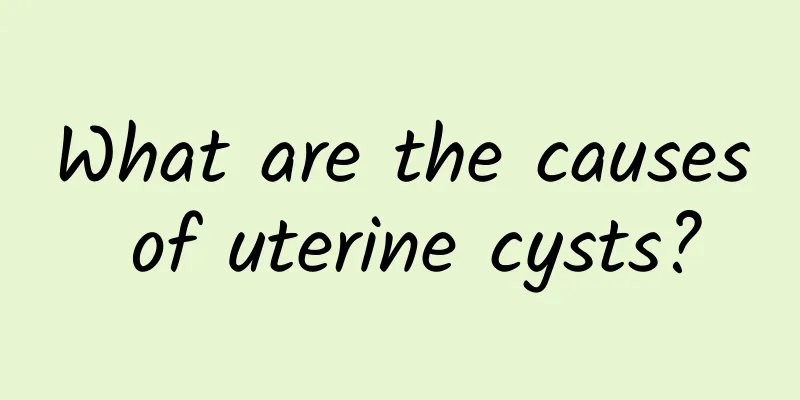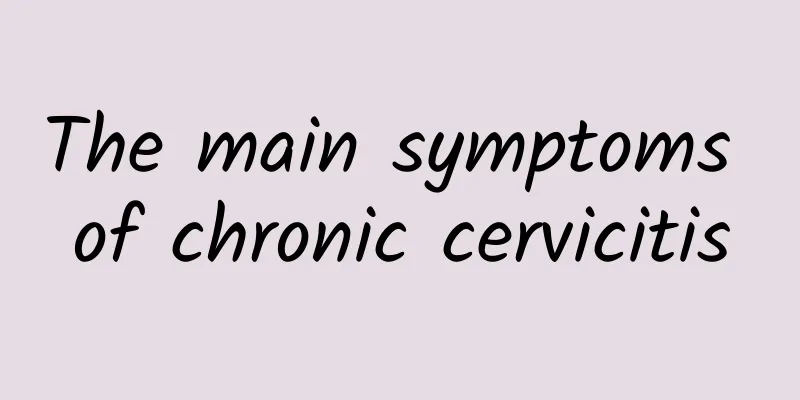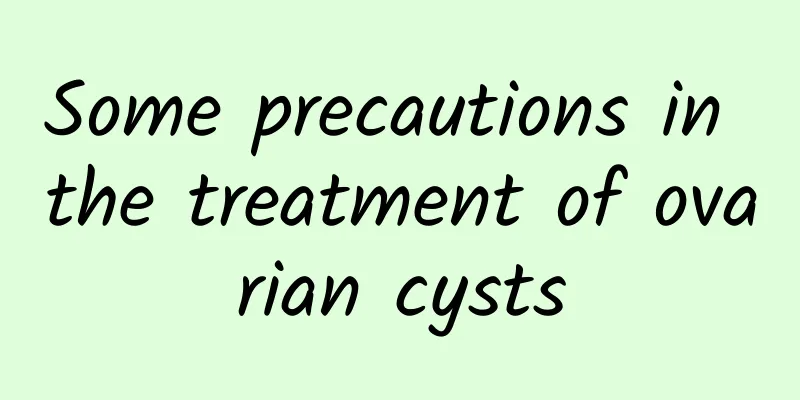What are the causes of uterine cysts?

|
The formation of uterine cysts is related to many reasons, including genetic factors, hormonal disorders, chronic inflammation and external environmental stimulation. Different individuals may develop cysts due to the superposition of multiple factors. Genetic factors may increase the risk of uterine cysts. If a female relative in the family has a similar disease, the individual's chance of developing the disease may increase. An imbalance in hormone levels is a common cause, especially when estrogen is too high or progesterone is insufficient, which may stimulate abnormal proliferation of uterine tissue and eventually form cysts. Chronic cervicitis, pelvic infection, etc. can also cause local tissue damage or hyperplasia, causing cysts. Endocrine disruptors in the daily environment, such as skin care products and food additives containing excessive chemical ingredients, may also participate in the formation of cysts by affecting the hormone system in the body. Genetic factors may increase the risk of uterine cysts. If a female relative in the family has a similar disease, the individual's chance of developing the disease may increase. An imbalance in hormone levels is a common cause, especially when estrogen is too high or progesterone is insufficient, which may stimulate abnormal proliferation of uterine tissue and eventually form cysts. Chronic cervicitis, pelvic infection, etc. can also cause local tissue damage or hyperplasia, causing cysts. Endocrine disruptors in the daily environment, such as skin care products and food additives containing excessive chemical ingredients, may also participate in the formation of cysts by affecting the hormone system in the body. In order to reduce the risk of uterine cysts, it is recommended to pay attention to the following points: maintain a regular work and rest schedule, reduce staying up late to maintain hormone balance; eat a balanced diet, take in enough vitamins and dietary fiber; avoid being affected by potential endocrine disruptors in the environment, such as reducing exposure to pollutants and hormone products. If you suspect that you have related symptoms such as lower abdominal pain or abnormal menstruation, you should seek medical attention in time, confirm the diagnosis through ultrasound examination, and develop a treatment plan under the guidance of a doctor. |
<<: Can uterine fibroids become cancerous?
>>: What is the chance of spontaneous abortion in cervical pregnancy?
Recommend
How to resolve the recurrence of Bartholin's gland cyst
If Bartholin's gland cyst recurs, you need to...
The order of diet is very important if you want to lose weight successfully
When it’s time to eat, there’s a table full of de...
How to perform uterine fibroid surgery and what are the common treatments for uterine fibroids?
Uterine fibroids are the most common tumors of th...
Water jet liposuction reduces swelling and allows you to lose weight during lunch break
Water jet liposuction can also help you lose weig...
Postpartum chronic pelvic inflammatory disease must be prevented
After giving birth, many mothers focus their ener...
How to cure the pain of lymphatic dysmenorrhea patients and how to eliminate lymphatic pain
Lymphatic dysmenorrhea is a common gynecological ...
Daily care for endometrial tuberculosis
How should endometrial tuberculosis be cared for?...
Nursing methods of traditional Chinese medicine for miscarriage
In our real life, there are many women who become...
Study: Eating dark chocolate can reduce stroke risk in men Nutritionist Zhao Hanying: 4 benefits of eating chocolate
Before their menstrual period or when they are in...
What are the sequelae after abortion? What are the dangers of having too many abortions?
Abortion is a common method of terminating pregna...
Key points for distinguishing vulvar leukoplakia from perineal vitiligo
There is a certain degree of similarity in the cl...
Several major causes of vaginitis
Vaginitis, as the name suggests, is an inflammati...
Common clinical symptoms of acute ectopic pregnancy
What are the common clinical symptoms of acute ec...
The symptoms of ectopic pregnancy in women can be reflected in the following aspects
Many people panic when they find out they have an...
Itchy genital area with damp heat and abnormal vaginal discharge
Itching and abnormal vaginal discharge are usuall...









